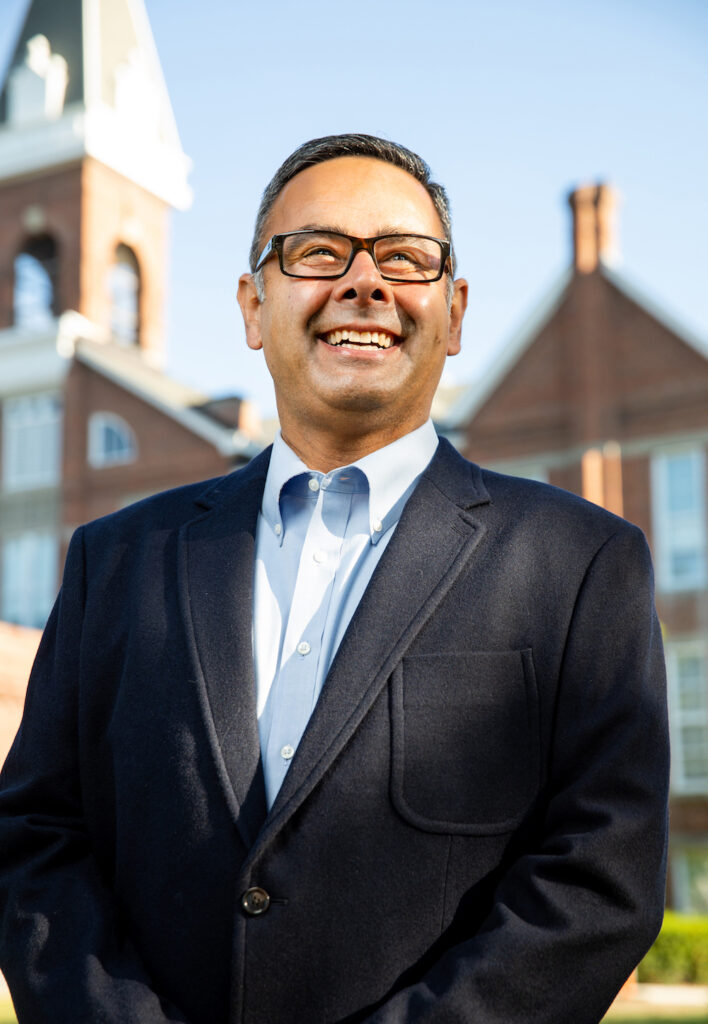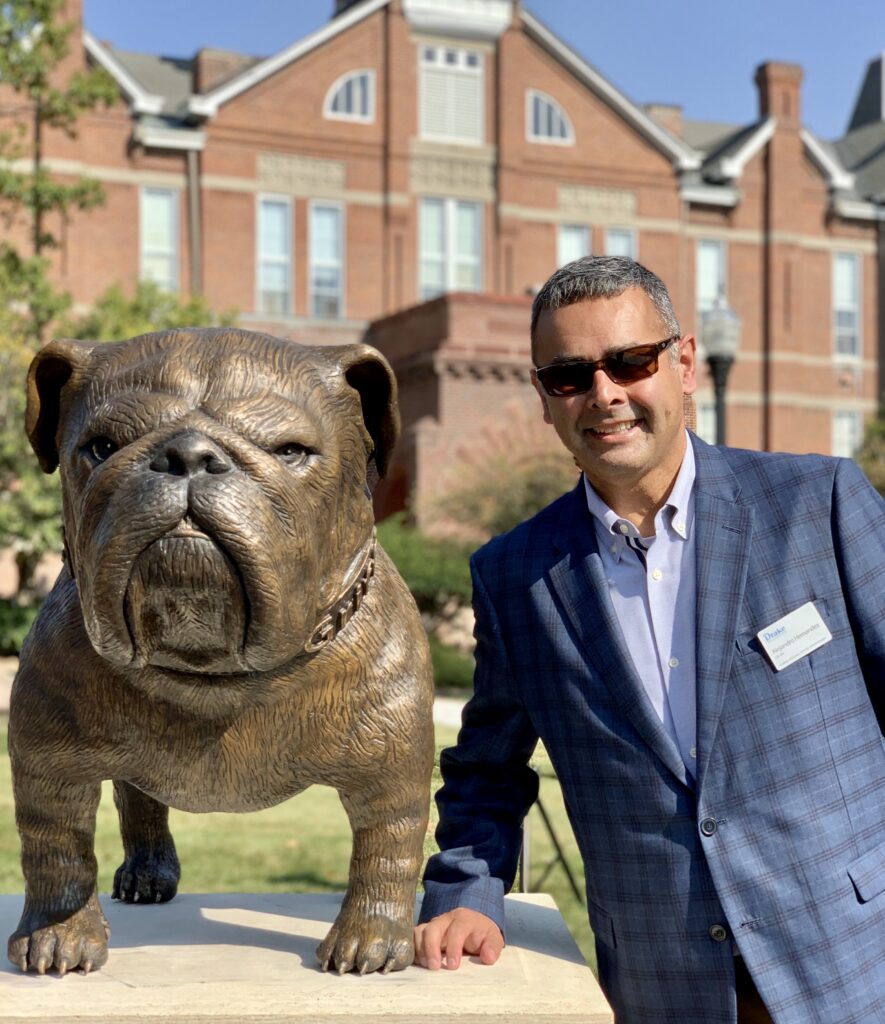This Q&A is part of the story series Voices of Drake that highlights the diversity, ambition, and passion of the incredible people who make up our campus community. In honor of Hispanic Heritage Month, we will be sharing a collection of interviews to spotlight some of the amazing people in our community who identify as Hispanic, Latino, Latina, or Latinx. This week’s story highlights Alejandro Hernandez, Dean of the Zimpleman College of Business.

Tell us about yourself.
My name is Alejandro Hernandez and I have served as Dean of the Zimpleman College of Business since 2020. I am a first-generation immigrant from Chile. I was a first-generation college student. I am the first Latino to serve as a dean in Drake’s 140-year history.
What does Hispanic Heritage Month mean to you?
It reminds me of the beauty and strength that exists in the diversity of the Latino community. The labels Hispanic and Latino mandated by the United States government five decades ago as a means of categorizing Americans who trace their heritage to Spanish-speaking countries do not reflect the many unique ways we identify and celebrate ourselves.
What is your favorite thing about working at Drake?
I appreciate the opportunity to make a difference in the lives of future business leaders.
What did you study, and where did you work before coming to Drake?
I earned a bachelor’s degree in journalism at Cal State Long Beach, and 25 years later a master’s in social responsibility from Western Kentucky University; most recently, I was responsible for the development and integration of corporate social responsibility strategies at Wells Fargo.
What inspired you to study and pursue a career path in your field?
I was inspired to get a degree in social responsibility when I had the opportunity to take on a leadership role in my company’s business and human rights work. This experience made me realize the power and responsibility that the private sector has to help address society’s greatest challenges.
Similarly, what made you want to work in higher education?
My sense—right or wrong—is that the knowledge I acquired over decades in corporate America could be valuable in guiding the formation of the next generation of business leaders here at Drake.
Who has been the biggest influence in your life, and what lessons did that person teach you?
As immigrants, my family’s reason for coming to the United States was to seek a better life. My parent’s purpose was to make enough money to live a middle-class life even if it meant toiling as a mechanic or a factory worker. I always remember my dad telling me to find a job using my mind instead of my back.

What do you hope is accomplished during this month of celebration and recognition?
I hope it allows people to see the Latino experience in all its complexity—young and old, recently arrived and third-generation, blue collar and white college, English and Spanish.
In your current position at Drake, is there any work you’re doing to strengthen the impact of diversity, equity, and inclusion on campus?
I serve as the advisor to La Fuerza Latina and support its work to provide a space for students in solidarity with the Latino community in Des Moines and Drake and to foster dialogue around issues impacting Latinos, as well as to explore opportunities to promote a more inclusive atmosphere at Drake University.
Are there any interesting projects or research you are working on?
I have been involved in the work of the Iowa Latinx Project, an initiative led by a cross-section of Latino leaders seeking to advance understanding of the issues surrounding Iowa’s largest ethnic group through data and stories with the goal of improving the conditions of our community.
These past few years have been like no other. What advice would you like to give to students at Drake?
What I have learned over the years is that we need to own our narrative to make sure we are seen for who we are rather than letting others make assumptions about us based on our identities. Author Heather McGhee made a statement a few years ago that really resonated with me: “Everything we believe comes from a story we’ve been told.” Tell your story!

